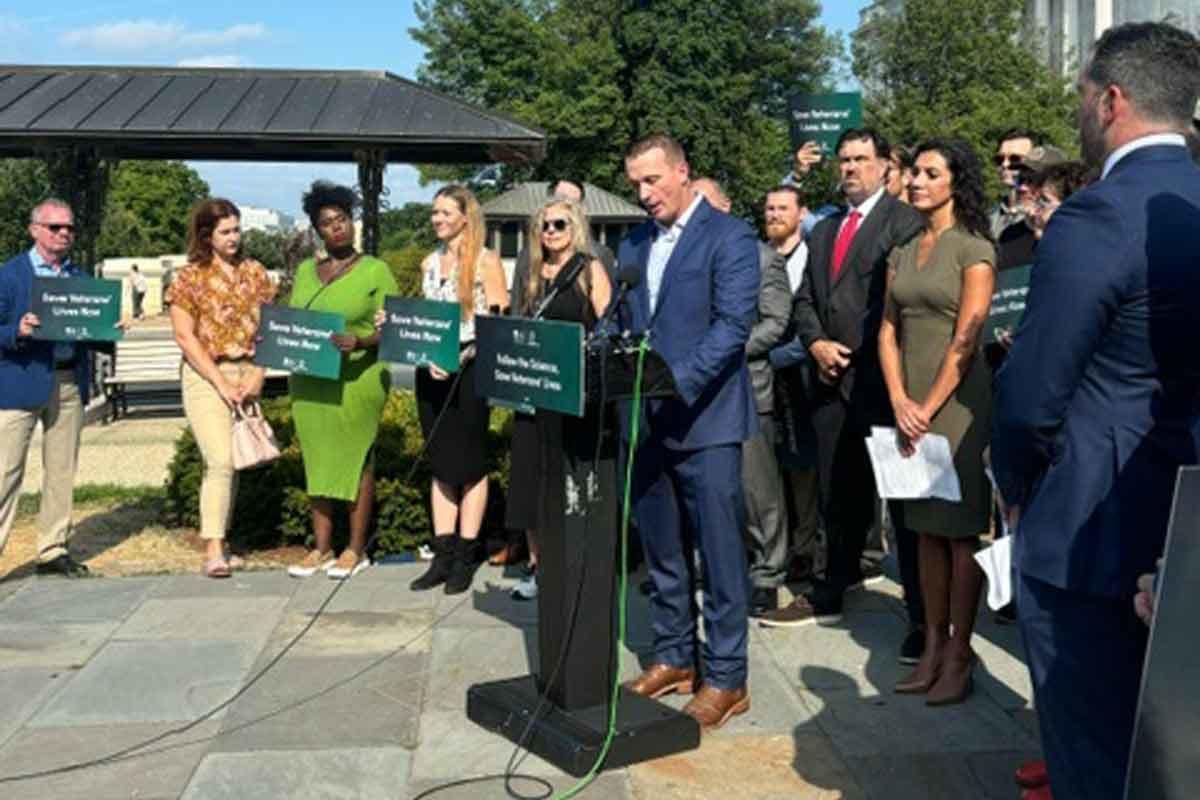

Lawmakers and advocates have launched a full-court press for federal approval of the psychedelic drug MDMA to treat post-traumatic stress disorder after an advisory panel recommended against the therapy last month.
Rep. Jack Bergman, R-Mich., a retired Marine lieutenant general; Rep. Morgan Luttrell, R-Texas, a former Navy SEAL; Army veteran Rep. Jimmy Panetta, D-Calif.; and Rep. Lou Correa, another California Democrat, came together Wednesday to support the medication ahead of the Food and Drug Administration’s decision, expected by Aug. 11.
“Yes, I have done this, and yes I support this 100% and always will,” Luttrell said during a news conference Wednesday on Capitol Hill. “If the FDA comes back with a result that we don’t care for, we will continue to do the research, we will continue to come forward every single day, because the service members deserve it, the veterans deserve it, the families deserve it.”
Read Next: Newly Graduated Army Data Experts Could Help the Service Reverse Its Recruiting Slump
Researchers published results of clinical trials last year that indicated 87% of patients had significant improvement in their PTSD systems four months after receiving the treatment, which combines doses of MDMA with psychotherapy by a trained provider.
According to the study, 71% no longer met the diagnostic criteria for PTSD at the end of the study.
But members of an FDA advisory panel that was considering the treament’s safety and efficacy found fault with the research, saying the way it was conducted could inflate results. Panel members also believed that, since some of the participants had used MDMA previously, they would be biased and report favorable results.
“It seems like there are so many problems with the data — each one alone might be OK, but when you pile them on top of each other … there’s just a lot of questions I would have about how effective the treatment is,” said Melissa Decker Barone, an adjunct professor with the University of Maryland School of Medicine.
The 10-1 vote against the treatment followed publication of an FDA analysis that raised concerns about the trials.
Bergman said that, given the number of veterans who take their lives each day — roughly 17, according to the Department of Veterans Affairs — there is a need for new treatments, including psychedelic-assisted therapies.
No new treatments for PTSD have been approved in more than two decades. Currently, accepted treatments for PTSD at the VA include FDA-approved medications Paxil and Zoloft, as well as prolonged exposure therapy and cognitive processing therapy.
“Many of us in Congress and especially those who served in uniform were disappointed and frustrated by the recent recommendation,” Bergman said. “The advisory panel chose to ignore the voices of veterans … in favor of those who have been seeking to discredit this treatment at all costs.”
Earlier this year, the VA announced funding for research into the use of psychedelic substances including MDMA and psilocybin, the active ingredient in hallucinogenic mushrooms, to treat mental health conditions.
Medal of Honor recipient and Marine Corps veteran Dakota Meyer said he supports approval of MDMA therapy because it not only can “heal a veteran” but “heal a family.”
“It’s not a cure-all solution for PTSD, but it is and can and will significantly improve the quality of life for those affected,” Meyer said during the press conference.
Veterans advocacy groups supporting the effort include the nonprofits Healing Breakthrough and Heroic Hearts Project, which both support veterans with PTSD or combat-related mental health conditions to access psychedelic therapies.
Bergman, Luttrell and Correa also are cosponsors of a bill that would require the Defense Department to provide grants to research institutions to treat active-duty service members with PTSD or another covered condition with psychedelic substances.
Correa on Wednesday called the therapy a “proven cure.”
“Our message here today is ‘FDA, do your job. Take care of our veterans. Save veterans from suicide,'” Correa said.
